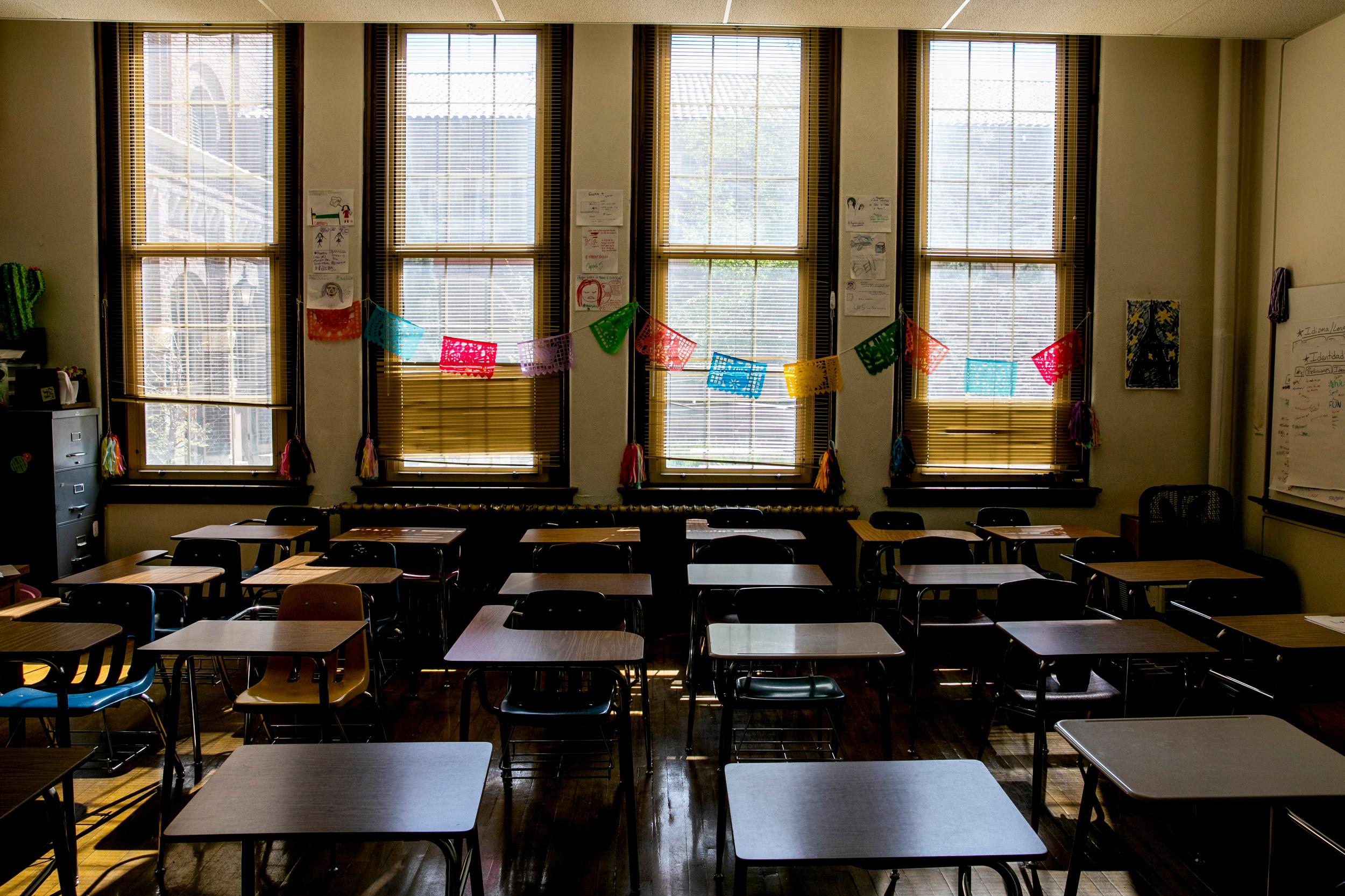
The body that sets education policy for 178 school districts and academic standards for nearly 2,000 public schools in Colorado appears to have retained the Democratic control it’s held since 2016, according to preliminary election results.
Two new seats on the State Board of Education that oversees Colorado’s education policy are so far going to Democrats, which would give the nine-member board a 6 to 3 Democratic majority. Previously, the seven-member board had four Democrats and three Republicans.
Which candidates are leading as of Wednesday
For the new at-large seat, former Adams 12 school board president Kathy Plomer, a Democrat, stands at 52 percent of the votes to 44 percent against Republican challenger Dan Maloit, a St. Vrain parent advocate for schools opening during the pandemic. The vote tallies are preliminary and the race has not yet been called by the Associated Press, the standard by which CPR News reports race calls.
Plomer said she will advocate for schools to get the resources they need and will champion the idea that public schools are central to communities and democracy.
“I see strong public schools as places of innovation and discourse where students explore, discuss, and respectfully debate ideas; examine our complex history; delve into science; and learn to identify and combat disinformation,” she said. “Our students need to be informed, critical thinkers to be our next generation of leaders, entrepreneurs and citizens.”
In the new 8th Congressional district spanning Weld and Adams counties, Democrat Rhonda Solis, a former Greeley-Evans school board member, appears to have nudged out Republican Peggy Propst, a former state school board member. Preliminary results show Solis up by about 4,000 votes, a lead of less than 3 percentage points. Solis, a Latina community advocate, will become the first person of color on the current board. About 35 percent of the state’s students are Hispanic.
In the 6th Congressional District, representing much of the eastern part of metro Denver, including all of Aurora, incumbent Rebecca McClellan has a commanding lead against Republican challenger and Cherry Creek parent Molly Lamar, 59 percent to 41 percent in the preliminary count.
In the 5th Congressional District, representing Colorado Springs and its suburbs, incumbent Republican Steve J. Durham is coasting to a second term with 58 percent of the vote compared to 42 percent for his Democratic challenger Joseph Shelton. Durham, who served as a state legislator in the 1970s and ’80s, has been a vocal advocate for school choice and holding underperforming school districts accountable.
Why did the race attract so much public interest this year?
In years past, the political affiliations of state school board members didn’t play a significant role. Most of the board’s work revolves around setting academic standards and rules around testing and accountability, teacher licensure, grants and district budgets, and setting rules for other education-related laws. It also hires the state’s education commissioner.
But as politics began penetrating local school board discussions, it has seeped in at the state board debates on things such as updating social studies standards and charter school appeals.
As politics on the board ratcheted up, public interest in what the state school board is, what it does and who was running in this year’s races increased because more was at stake – including what children were learning in history and civics classes.
There are several issues where politics have flared up.
On a 4 to 3 vote, the state board recently upheld a ruling by the Durango school district to deny an application by Ascent Classical Academy. Ascent said it would offer a “classical education” focused on the history of Greek and Roman culture and core subjects but the district argued the school didn’t have a viable financial plan or provide evidence of equal education opportunities. The Durango school district was also uncomfortable with the school’s affiliation with Hillsdale College, a private Christian conservative institution that launches publicly funded charter schools across the country.
Republicans on the board have tended to side with independently run, publicly funded charter schools in appeals before the board when a local district denies a charter school. But that isn’t always the case.
The board split along party lines over whether to adopt the conservative American Birthright social studies standards instead of standards developed by a committee of Colorado experts tasked with making the standards conform to state law. A 2019 law calls for social studies standards that reflect the history, cultures and social contributions of diverse peoples. The board will take up that issue again Thursday.
The board’s power to strip some decision-making authority from persistently low-performing school districts like Adams 14 also raised the public profile of the board. In May, the board voted 4 to 3 for the Commerce City district to reorganize. That long drawn-out dispute was framed by some school districts as an infringement on their constitutional right of local control. A judge dismissed an Adams 14 lawsuit that accused the state of violating its rights.
What issues should be reflected in Colorado’s social studies, math, health and science standards could possibly continue to be of high public interest. Current board members are expected to sign off on social studies standards before the end of the year and before new candidates take office. The next academic standards revision subject for the board is the school subject of health and wellness.
Adams 14 accountability and what a reorganization committee made up of neighboring districts will decide about the future of the district will still be on the board’s agenda next year. The board will continue on with its regular duties of accountability hearings for schools and districts, overseeing the administration of state tests, and monitoring graduation and enrollment progress.









